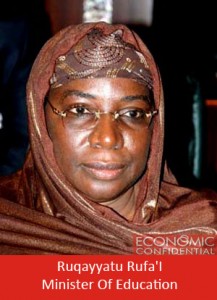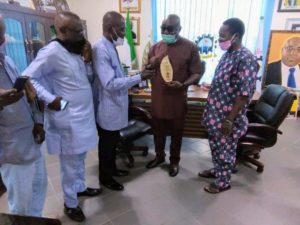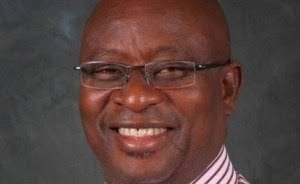Nigerian Education Lacking In Morality
By Christopher Odamah
Education is universally acclaimed as the best legacy that can be bequeathed to a child. To achieve this goal, there is no gain-saying the fact that in order to provide adequate all round education the responsibility of providing should not be left in the hands of parents alone. The family, school, community must play their roles as well.
Education is a very complex, time-consuming, energy sapping needs proper formulation of good policies and programmes to be beneficial to the people, thereafter followed by diligent and dedicated implementation of the various processes that comprise it in order to achieve the desired goals set out.
All of what has been outlined above goes to show that education cannot be adequately defined in few phrases or words. What education seeks to achieve is to impart knowledge and develop skills to people in the quest of transforming them to worthy citizens in character and learning, making them useful to the society or country they come from or live in.
Freethought is lacking in Nigeria’s educational institutions. This is because the country’s schools were originally established by religious groups, mainly Christian missionaries from Europe who used them as tools for converting the Nigerian. The curricula were faith-based and overwhelmed by religious dogma and brainwashing. Education was used to get Nigerians to embrace Christianity or Islam. It was not an avenue for self-realization or intellectual growth.
But in the early 1970s, the Nigerian government took over all the schools in order to instill secular ideals and values into public education. But the Nigerian educational system has retained its religious character-Islamic in the north and Christian in the south. The government’s secularization project was never achieved. So, two religions have maintained their corrupting influence on Nigeria’s schools and students, allowing no space for free, independent, and secular thoughts to thrive and flourish.
For over a decade, Nigerian schools, colleges, polytechnics, and universities have been bedeviled by the actions of cultists and criminals. Tertiary institutions especially have been scenes of indescribable violence against students by other students. School authorities have often attributed the problems to students’ lack of faith, godlessness, or religious indifference. Some have turned to religious leaders for help, and they now flock to the campuses to hold crusades, prayer sessions, and revivals. But the problems have not been solved.
There is no longer any clear demarcation between religious duties and academic work.
Before the advent of colonial rule, education occurred in traditional manners as practiced by the family units and communities. There was little cross-fertilization between ethnic groups; self-governing communities and very little documentation took place. While in some parts of the country, religious schools existed, particularly in the Northern region.
The obvious questions that immediately come to mind include the following. What is knowledge? How is it gathered? How can it be imparted from one persons to another? What are the tools and other requirements that are needed for the process of imparting knowledge? Who are those responsible for this process?
I wish to answer these questions in the context of what has transpired in the education sector in our communities and country, Nigeria over the last 52 years of Independence.
Western-style education came to our shores when early European missionaries aided by the merchants began to penetrate the lands from the Atlantic coast in the late 19th century and early 20th century. Obviously the context of education brought by these missionaries bore huge component of religiosity and high emphasis on morality.
The environment in which learning took place radiated the practice of simple natural laws of right and wrong, adherence to the preaching of the Holy book (Bible) and respect for constituted authority. These attributes were already part of the European culture that was brought to the relatively uncivilized people they were trading with.
When schools, in which formal education was being thought were established by the different Governments and individual entrepreneurs, character formation underlined by cultivation of moral values still held sway, and the products of such schools along with those from missionary schools permeated the society engendering honesty, righteousness, kindness and compassion for fellow citizens. Crime rate was very low and people lived happily in the new environment imposed by the British Colonial Masters.
Noteworthy was the efforts made by late Chief Obafemi Awolowo in the Western region in which education was made free, enabling ordinary poor children to attend school. Budgetary allocation to the education started to dwindle during the years of military rule and a nation-wide collapse of education from primary to tertiary became manifest.
The education sector did not grow commensurately with the growing population of children that needed to go to school. Facilities were neglected, and by the 1980’s the Nigerian environment was no longer conducive for good quality education. The Lecturers and other categories of staff in the schools, particularly the Universities became unhappy with their jobs and several times embarked on strike action. Today, education in Nigeria is a far cry from what it is supposed to be.
One is therefore not surprised that of our Universities are poorly trained in academics and woefully lacking in character. Morality has since fallen off their consciousness, and this can be traced to the deliberate exclusion of the churches at the secondary school level by some state Governments.
The effect of this is that the country gradually turned into a breeding ground for Lawless youths, who were completely oblivious to issues of morality and respect for the sanctity of life. This unfortunate state of affairs is now corroborated by the endemic corruption that most Nigerians have come to accept as a way of life.
No matter what we say, the unforgivable mistake made by our rulers as the erosion of morality from the education sector of our country, without morality, nothing else can be done right in a community or nation desirous of organized development.
The evidence of absence of morality is the incessant incidences of armed robbery, kidnappings, disrespect for constituted authority and massive corruption currently prevalent in the country. The education sector must restore morality in its curriculum and other character training taken more seriously.




